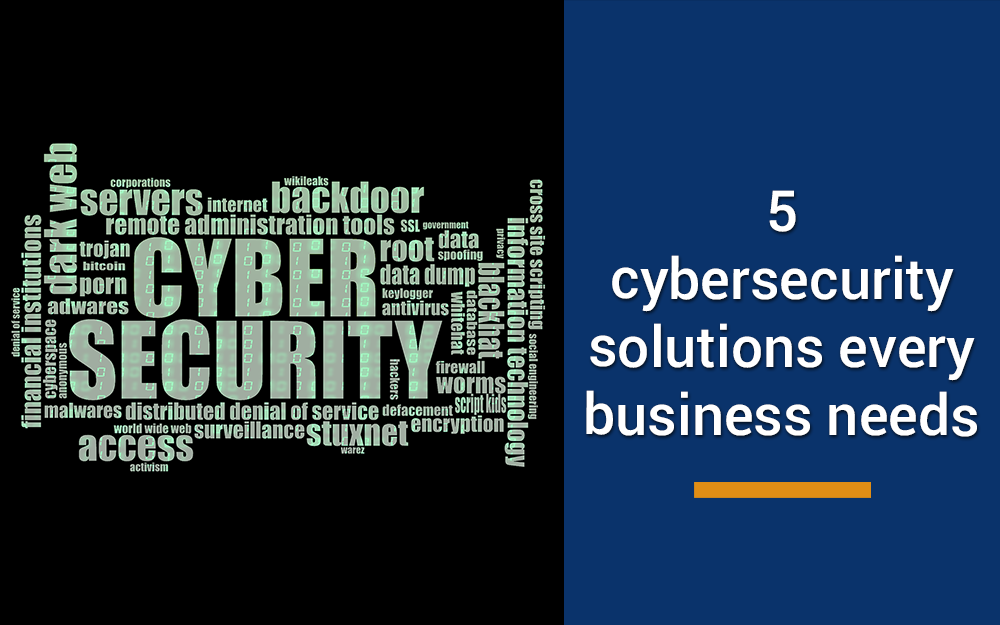As an experienced SEO writer, your task is to write two opening paragraphs in English for an article titled Ultimate Guide to Cybersecurity Solutions for Startups. This article targets the keyword Cybersecurity solutions for startups. The meta description for this article is:
Discover the best cybersecurity solutions to protect your startup from cyber threats. Learn about essential tools, practices, and compliance regulations.
The opening paragraphs should be designed to attract the reader’s attention and encourage them to continue reading the article. Use the meta description as a guide to determine what information should be included in the opening paragraphs. Each paragraph should not exceed 200 characters.
When writing the opening paragraphs, make sure to adhere to the following writing guidelines:
– Intent: Educate startup founders about the importance of cybersecurity and provide actionable tips to enhance security measures for their businesses.
– Style: Informative and instructive
– Tone: Professional and authoritative
Also, ensure to include the keyword Cybersecurity solutions for startups in one of the paragraphs. Additionally, provide some background or context about the article topic to help readers understand what they will be reading.

Understanding the Vital Role of Cybersecurity Solutions for Startups
Cybersecurity solutions for startups play a vital role in safeguarding sensitive data and upholding customer trust, pivotal for sustainable growth. Startups, amidst rapid expansion, encounter distinct cybersecurity hurdles worsened by constrained resources. Integrating robust cybersecurity measures becomes paramount to thwart risks and fortify operational sustainability seamlessly. Effectively addressing these challenges is pivotal for startup longevity and success in the digital landscape.

Common Cybersecurity Threats Faced by Startups
Data breaches and data loss are prevalent threats for startups, compromising sensitive information. Implement encryption and access controls to safeguard data from unauthorized access.
Malware and ransomware attacks can cripple startups. Regularly update antivirus software and educate employees on safe browsing habits to mitigate risks effectively.
Phishing and social engineering scams deceive employees into revealing sensitive data. Conduct regular cybersecurity awareness training to equip your team with the knowledge to recognize and avoid such threats.
DDoS attacks can disrupt online services, impacting startup operations. Invest in DDoS protection services to mitigate the risk of service downtime and maintain business continuity.
Insider threats pose a significant risk, as employees with malicious intent can exploit access privileges. Implement strict access controls, conduct thorough background checks, and monitor user activity to mitigate insider threats effectively.

Implementing Best Practices for Cybersecurity in Startups
In the fast-evolving digital landscape, startups must invest time in regularly updating software and security patches to mitigate vulnerabilities effectively. Establishing a robust cybersecurity policy and incident response plan is paramount to swiftly address potential breaches. Educating employees on cybersecurity risks and best practices creates a strong human firewall within the organization.
Regular security audits and penetration testing are essential to proactively identify and remediate vulnerabilities before they are exploited. Lastly, considering cybersecurity insurance can provide an added layer of protection against unforeseen cyber incidents, offering peace of mind in the face of growing threats. By implementing these best practices, startups can significantly enhance their cybersecurity posture and safeguard their valuable assets.

Leveraging Cloud-Based Cybersecurity Solutions for Startups
Cloud-Based Firewalls and Intrusion Detection Systems
Implementing cloud-based firewalls and intrusion detection systems can fortify your startup’s defenses against cyber threats. These solutions act as virtual barriers, monitoring network traffic and identifying malicious activities in real-time, safeguarding your sensitive data from unauthorized access.
Managed Security Services
Engaging managed security services can provide round-the-clock monitoring, threat detection, and incident response, offloading the security management burden from your team. These services offer expertise in handling security incidents efficiently, enhancing your startup’s defense posture effectively.
Data Backup and Recovery in the Cloud
Utilizing cloud-based data backup and recovery solutions ensures that your critical business data is securely stored off-site, offering protection against data loss due to unforeseen events like cyber attacks or system failures. These services enable swift recovery of data, minimizing potential downtime and operational disruptions.
Cloud-Based Threat Intelligence
Leveraging cloud-based threat intelligence platforms enables startups to stay ahead of emerging cyber threats by accessing real-time information and analysis. By integrating threat intelligence into your cybersecurity strategy, you can proactively identify and mitigate risks, strengthening your overall security posture.
Benefits of Cloud-Based Cybersecurity Solutions for Startups
Cloud-based cybersecurity solutions offer scalability, cost-effectiveness, and flexibility, making them ideal for startups with limited resources. By outsourcing security to reputable cloud providers, startups can access advanced security capabilities, continuous updates, and enhanced protection without the upfront investment in hardware or dedicated personnel.

Leveraging Cybersecurity Tools and Resources for Startups
Embracing Free and Open-Source Cybersecurity Tools:
Discover cost-effective options like OpenVAS for vulnerability scanning or Snort for intrusion detection. These tools can fortify your startup’s defenses without straining your budget, offering customizable solutions suitable for startups. Ensuring security without compromising quality is essential as you navigate the digital landscape.
Accessing Government Resources for Cybersecurity:
Utilize government resources such as the Cybersecurity and Infrastructure Security Agency (CISA) for guidance and threat intelligence. Leverage programs like the Small Business Administration (SBA) resources tailored to assist startups in fortifying their cybersecurity posture. Engaging with these resources can provide valuable insights for enhancing your startup’s security measures.
Engaging with Industry Associations and Non-Profit Organizations:
Tap into the expertise of industry associations like the Information Systems Security Association (ISSA) or the International Association of Privacy Professionals (IAPP). Non-profits like the Cybersecurity and Infrastructure Security Agency (CISA) offer valuable resources and networking opportunities for startups. Collaborating with these organizations can broaden your knowledge base and foster a secure environment for your startup.
Pursuing Online Cybersecurity Courses and Certifications:
Invest in online courses from platforms like Cybrary or certifications like Certified Information Systems Security Professional (CISSP). Enhance your team’s skills with specialized training to tackle evolving cyber threats effectively. Empowering your staff with these educational resources can significantly contribute to bolstering your startup’s cybersecurity defenses.
Unlocking the Benefits of Cybersecurity Tools and Resources:
By integrating a diverse range of cybersecurity tools and resources, startups can fortify their defenses against cyber threats effectively. Increased awareness, skill development, and access to cutting-edge technologies enable startups to proactively safeguard their digital assets, enhance customer trust, and mitigate potential security breaches. Embracing these resources aligns with best practices for robust cybersecurity strategies in the digital era.

Ensuring Cybersecurity Compliance for Startups
Maintaining cybersecurity compliance is vital for startups to safeguard sensitive data and build trust. Adhering to key regulations like GDPR, HIPAA, or ISO standards not only protects data but also fosters credibility with clients and investors. Achieving compliance involves thorough risk assessments, staff training, and regular security audits to mitigate vulnerabilities effectively.
Complying with cybersecurity regulations offers startups significant advantages, including improved data security, reduced risks of data breaches, and enhanced brand reputation. By aligning with regulatory requirements, startups demonstrate commitment to data protection, gaining a competitive edge and increasing customer trust. Prioritizing compliance also aids in establishing a secure foundation for business growth and expansion.
To achieve cybersecurity compliance, startups should outline clear policies, implement robust security measures, encrypt sensitive data, and regularly update systems. Engaging cybersecurity experts for guidance, conducting penetration tests, and staying informed about emerging threats are essential steps. Startups should integrate compliance practices into company culture, ensuring continuous vigilance and adaptation to evolving cybersecurity landscapes.
Navigating cybersecurity compliance poses challenges for startups, such as limited resources, complex regulatory frameworks, and the need for specialized expertise. Balancing regulatory requirements with operational demands requires strategic planning, resource allocation, and ongoing commitment to cybersecurity best practices. Startups must prioritize compliance efforts, seek tailored solutions, and invest in sustainable security measures to fortify their digital defenses amidst growing cyber threats.

